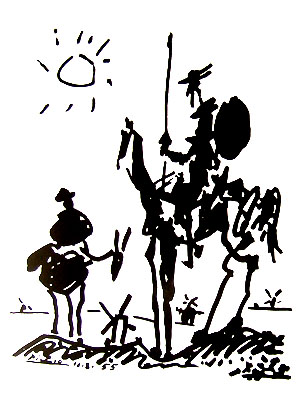Depression
In a good state of energetic functioning, energy from the core of the person travels to the surface, and this constitutes an impulse. The impulse gives rise to desires, feelings, thoughts, and potentially actions. With low energy, actions tend to be executed with the will, and desire, feeling, and even thoughts are impoverished. In this will-driven state activity may be frenetic, but lacks satisfaction and gracefulness. What is universally recognized as depression occurs when the the will collapses and the underlying lack of energy becomes manifest. The affected person moves less, moves slowly, cannot feel much, and cannot get interested in anything, either on a body or ego basis. There is a belief that nothing matters perhaps amounting to despair.
Straightforward attempts on the psychological side to get the sufferer to become interested in something produce very meager results. What is needed is to increase energy through breathing, grounding, and vibration.
Depression is not 'a very sad state' although inability to grieve a loss can lead to depression. Depression is the end point to living by will alone, which depletes energy without renewing it.
Low level depression is a way of life for very many people. Psychology has a word for it, dysthymia. At this level, life may have some satisfactions, and sufferers are able to meet their economic and role responsibilities as they understand them. Still, the machinery and fundamentals of depression are just underneath the surface. Deeper depressions do break through from time to time, and at best life seems a chase of contentment that is always out of reach. One can think of major depression as being decompensated and dysthymia as being compensated.
Although depression in some sense can be thought of as 'bad luck', it is not random. It is the consequence of joyless living, and often precipitated by a disillusionment. The illusion that shatters is frequently that one can earn love by achievement or self-sacrifice. The capacity for joyful living will naturally develop in a child, unless social and familial pressures and injuries prevent it.
The mainstream culture usually attributes depression to a strangely persistent mental error. Depressed persons are pressured to to think correctly, and told further that correct thoughts lead to good feelings. This often leads the depressed person to hide his or her 'illogical' thoughts. These cognitive distortions are the mind's best effort to understand very painful feelings that are real and that also are reflected in the state of the body. They are so compelling and persistent because they make 'sense' (as in sensation) about what is really happening with a person.
After great physical activity, say an all day mountain hike, the body may be exhausted, but also very satisfied because energy and excitement was there in the beginning of the hike and was discharged. This provides the satisfied feeling and sets the stage for rapid reaccumulation of energy. Depression however, is exhaustion without satisfaction. Energy cannot be easily accumulated because it is difficult to discharge it. The energy level of an organism will be determined by the demand, but the demand is not set by will power, but by breathing and body motility.
Elation can lift a depression, but as disillusionment comes depression returns. The path to feeling better actually consists of overcoming a reliance on the false lift of elation, building a solid base of energy and satisfaction, and possessing well-grounded healing anger.
